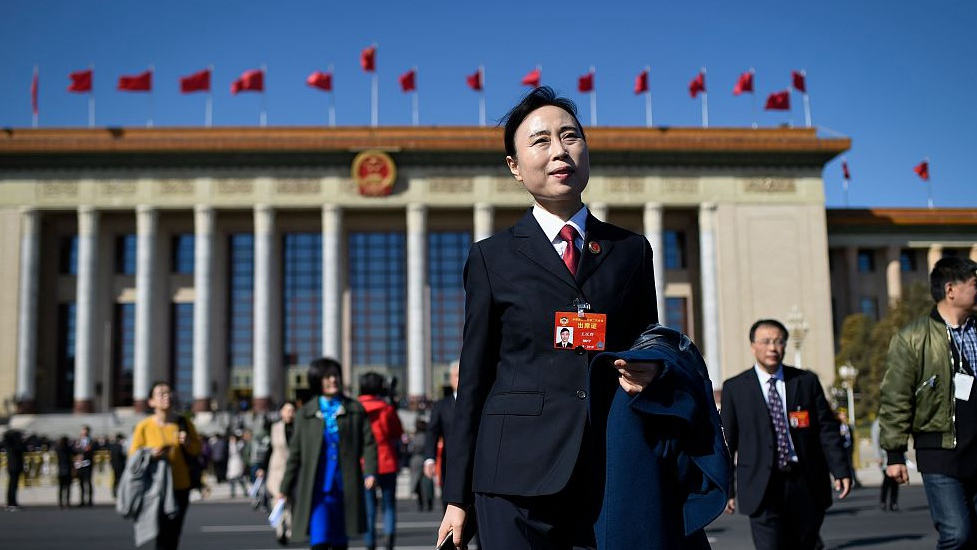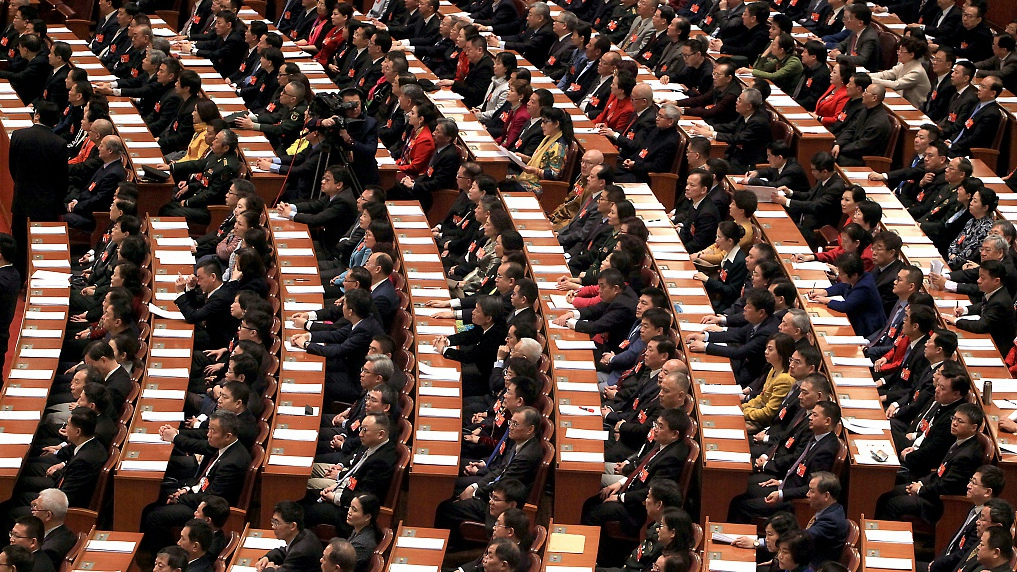
Opinion
13:38, 14-Mar-2019
CPPCC is highly important to China's political life
Kong Qingjiang

Editor's note: Kong Qingjiang is the dean of the School of International Law under China University of Political Science and Law. The article reflects the author's opinion, and not necessarily the views of CGTN.
The annual sessions of the Chinese People's Political Consultative Conference (CPPCC), the top political advisory body of China, and the National People's Congress (NPC), China's top legislature, are often dubbed as the "Two Sessions." As usual, this year's Two Sessions attracted worldwide attention from early to mid-March.
After being in session for more than 10 days, the CPPCC gathering for this year concluded on Wednesday. It consists of some 3,000 delegates from a range of political parties and organizations, as well as independent members. The political advisory body is often described by foreign media as a political gala, for the huge number of members attending the annual conference and their proposals, which range from important domestic legislation and high-profile international issues to smaller matters that affect Chinese people's daily life.
Actually, its role goes far beyond the description of journalists. Dating back to 1949 when the People's Republic of China (PRC) was founded, the CPPCC was established to put forward suggestions and build consensus under its Charter.
Even though China does not have a bicameral legislature, the CPPCC plays a similar role close to that of the upper house in a country with a bicameral legislature. In addition to providing political advice on important issues in the political and social sphere, it also reviews important bills that are submitted to it as well as to the NPC.
Under the current system centering around the CPPCC Charter, the annual session and the regular meetings of its Standing Committee serve to build consensus among its constituencies who represent all walks of life.

China's top delegates attend the closing meeting of the second session of the 13th Chinese People's Political Consultative Conference (CPPCC) in the Great Hall of the People in Beijing, March 13, 2019. /VCG Photo
China's top delegates attend the closing meeting of the second session of the 13th Chinese People's Political Consultative Conference (CPPCC) in the Great Hall of the People in Beijing, March 13, 2019. /VCG Photo
The CPPCC's decisions, whose official resolutions are conventionally named reports and political resolutions, represent the consensus of the Chinese people.
Although they are not legally binding, they are taken seriously by the NPC and its Standing Committee, the Central Committee of the Chinese Communist Party and the State Council (namely, the executive branch of the government). As a matter of fact, they must take into account and be responsive to the advice rendered by the CPPCC.
It is thus fair to say the CPPCC plays an important role in the political and social life of the country. Attending to the central task of the Chinese government and the ruling party, it has reportedly been endeavoring to improve the quality and efficiency of their advisory work.
Unlike in the past, attention has been paid closely to the barriers that hamper economic and social development in China, as well as to crucial and difficult issues in the maintenance of political stability and the rule of law. Given the experience of the CPPCC members, their advices in this regard are well received in general.
In recent years, the CPPCC has been seen to build its capacity to stay more relevant to the changing political and social environment. It even established a mobile platform to communicate needed information to the members, and enable them to conduct online consultation and deliberations.
This year marks the 70th anniversary of the founding of the PRC and that of the establishment of the CPPCC. It is expected that the political advisory body will continue with its mission and play an even bigger role as well as promote its own development.
(If you want to contribute and have specific expertise, please contact us at opinions@cgtn.com.)

SITEMAP
Copyright © 2018 CGTN. Beijing ICP prepared NO.16065310-3
Copyright © 2018 CGTN. Beijing ICP prepared NO.16065310-3